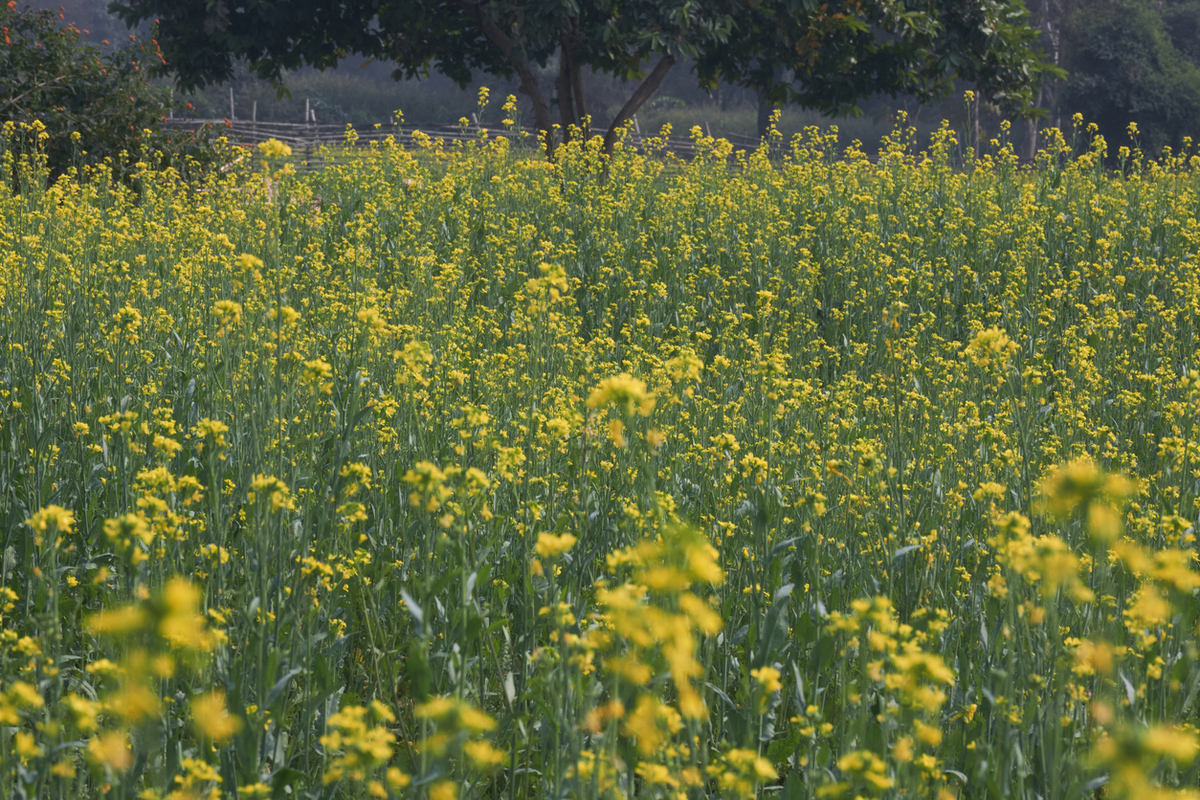
Regulatory Challenges Slow India’s Progress on GM Crop Adoption
June 11, 2025| |
Dr. Rohini Sreevathsa, a Principal Scientist at the Indian Council of Agricultural Research - National Institute for Plant Biotechnology (ICAR-NIPB), New Delhi, said that India's scientific community continues to make significant advacements in developing genetically modified (GM) traits for staple crops, but the lack of a clear and transparent regulatory system has stalled the progress. The commentary article was published in Nature India.
In March 2025, India's Supreme Court directed the central government to develop a national policy on the regulation and adoption of GM crops. Although Bt cotton has previously brought benefits to Indian farmers, attempts to commercialize food crops, such as GM mustard developed by Delhi University, have remained stalled. “This stagnation is not due to lack of research. India has a thriving community of plant scientists and molecular biologists who have steadily developed new traits in rice, wheat, pulses, and oilseeds,” Dr. Sreevathsa said. “The bottleneck lies in governance,” she added.
As other nations move forward with GM adoption, Dr. Sreevathsa says that India risks falling behind. The Genetic Engineering Appraisal Committee (GEAC), the country's apex regulatory body for GMOs, has often been caught between scientific evidence and political pressure. For years, regulatory outcomes have been influenced by public opinion more than by peer-reviewed scientific research and evidence. “The regulatory system, for its part, has failed to meet this moment with proactive communication,” Dr. Sreevathsa said.
With the national budget cycle prioritizing climate adaptation and agricultural productivity, the Supreme Court's directive presents a timely opportunity to develop a coherent GM crop policy emphasizing evidence-based regulation, transparency, and investment in research. “With the right safeguards and transparent institutions, GM crops can coexist with food safety, ecological stewardship, and farmer choice,” Dr. Sreevathsa said.
For more information, read the article from Nature India.
| |
You might also like:
- Dispelling the Myths of India’s GM Mustard
- India Releases Two Genome-Edited Rice Varieties
- Pocket K No. 35: Bt Brinjal in India
Biotech Updates is a weekly newsletter of ISAAA, a not-for-profit organization. It is distributed for free to over 22,000 subscribers worldwide to inform them about the key developments in biosciences, especially in biotechnology. Your support will help us in our mission to feed the world with knowledge. You can help by donating as little as $10.
-
See more articles:
-
Plant
- Australia's Gene Regulator Approves Field Trial of GM Safflower
- Camelina Engineered to Produce High Levels of Natural Astaxanthin
- USDA-APHIS Designates Cibus's Herbicide Tolerance Canola Trait HT2 as Not Regulated
- Regulatory Challenges Slow India’s Progress on GM Crop Adoption
- Save the Date: ASCA8 in Manila - September 2025
- Experts Urge EU to Allow NGTs in Organic Farming
- CAS Experts Optimize Tomato Production for Vertical Farming
-
Health
- EPA Announces Approval of GM Cholera Vaccine in New Zealand
-
Read the latest: - Biotech Updates (February 11, 2026)
- Gene Editing Supplement (January 28, 2026)
- Gene Drive Supplement (February 22, 2023)
-
Subscribe to BU: - Share
- Tweet

